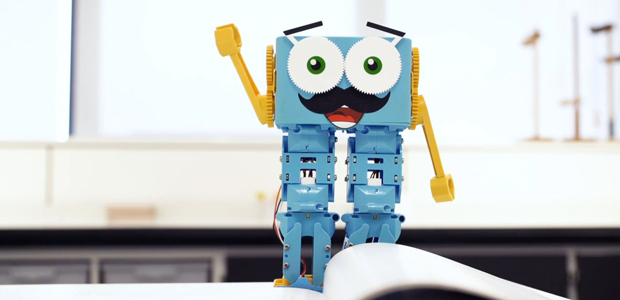
Joining hands to deliver education in South Africa
Robotical, the edtech startup behind Marty the Robot, has today announced that it is working with South African NGO, Got Game, on Nokia’s Helping hands project to deliver education to previously disadvantaged youths in South Africa.
The Helping hands project is Nokia’s global Corporate Social Responsibility (CSR) program under which the company supports employee-driven local community initiatives across the globe. Emphasising its technology with a social purpose approach, Nokia, the leading network technology vendor, aims to promote education to disadvantaged youths.
Under the program, Robotical will deliver Marty, the programmable and customisable robot for kids and educators, to schools across South Africa, in a nationwide effort to make coding and programming more accessible for disadvantaged youths in townships. Got Game will work with the schools involved to impart critical coding and programming skills. Thus far, Marty has been deployed in Johannesburg, Cape Town and the Limpopo region, with the hope of reaching other regions and major cities throughout 2020.
The initiative, which is part of Got Game’s ongoing We Code drive, comes at a time where 27% of South African pupils that have been schooled for six years cannot read, compared to 19% in Zimbabwe and just 4% in Tanzania. Only 4% of South African children study for a degree; and just one in every 200 black pupils can expect to do well enough at school to go on to study engineering, compared to ten in every 200 white pupils.
Got Game was founded in 2012, with the aim of achieving a measurable social impact across South Africa by bringing STEM (science, technology, engineering and mathematics) to as wide an audience as possible. In the midst of an ever-growing global STEM skills gap, training the workers of tomorrow with the skills needed to meet society’s hunger for technological solutions has never been more important.
“Nokia is committed to improving lives of local communities in various fields such as education. In South Africa, we are delighted to have launched this community initiative with Robotical. We were specifically drawn to Marty as the robot can be used by children of all ages. As their coding skills get more advanced, Marty can be scaled up accordingly,” says Deon Geyser, Market Unit Head for Southern Africa at Nokia. “Projects like these can have a more sustainable impact on the lives of young people. Therefore, it’s important that tools can show value for a number of age groups and for long periods of time, but also be fun and entertaining for the children, otherwise they fall flat. Marty provides such a tool.”
“Having access to such an innovative piece of tech as Marty the Robot is a really exciting step for us. The fact that our pupils can progress from basic Scratch coding through to more complex Python exercises is a real plus,” says Keane Small, project lead at Got Game. “We have run initiatives in the past on a smaller scale with great success. Many of the children we work with have never had access to a computer, so our aim is to bridge the gap between those that do and those that don’t. By doing so we hope we can equip all children across South Africa with the skills needed for the job market of the future.”
Robotical has been working closely with Got Game to ensure that the children are getting as much out of Marty as they can, with Robotical’s schools team offering hands-on advice and guidance on Marty’s various functions and use cases.
“This initiative is really at the heart of what we are trying to achieve as a company. Our aim has always been to make coding exciting, fun and accessible for as many young people as possible, regardless of where they are from,” says Sandy Enoch, founder and CEO of Robotical. “The feedback from Got Game thus far has been fantastic, and it is truly humbling to think that Marty could have a real impact on the lives of children that have never had access to technology. This is exactly why I started Robotical.”

